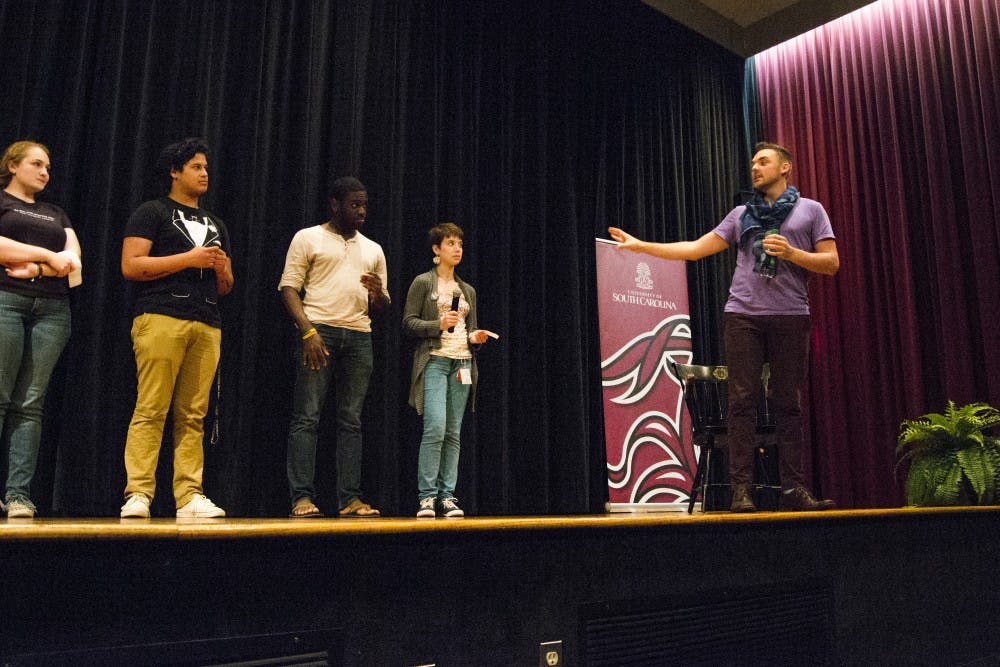Social justice comedian explains prejudices, equal representation in Tuesday night show
It’s not common to combine comedy with social justice, but Tuesday night in the Russell House Theater, Sam Killermann did just that.
After joking about the time he lost a nipple, discussing his imaginary friends and answering his childhood phone as Batman, Killermann used his life as a metrosexual man as an example of how prejudice plagues people to this day.
His experiences have led him to throw out the “golden rule” in favor of a new, “platinum” one.
“Instead of treating people the way you would want to be treated, find ways to treat people the way they’d want to be treated,” he said.
Killermann explained that when people have thought he’s gay, the stereotypes they applied to him — that he was clean, well-dressed and nice — didn’t bother him. It was the means of being labeled that was frustrating.
“You’re not straight enough to be straight; you’re not gay enough to be gay. You’re double-alienated,” he said. “It’s not a bad thing you thought I was gay. I’d be a lot worse if people thought I was ‘stabby.’ … Always wearing trenchcoats and hanging out in corners.”
Killermann’s show, “It’s Pronounced Metrosexual,” tackles big social commentary in a playful, informative way that hits home with a number of groups. He identifies himself as a “social justice comedian” who uses jokes to call out prejudice.
“I like to say that, as a social justice comedian, I use humor to help the social message,” Killermann said in an interview. “Kind of like a Mary Poppins type of social work — a little sugar helps the social justice go down.”
Starting out performing the show for free, Killermann said he is not in this to make money — he’s just working to spread the word and raise awareness. Even though LGBT is a big umbrella term that includes a variety of sexualities and gender identities, Killermann said that “there’s power in numbers.”
As he pulled students on stage to read eye-opening statistics, he also asked them to say their name, major and the shampoo they use. That unique combination is what makes Killermann’s act successful — viewers laugh, and they walk away thinking about how minorities are represented.
While his act addresses prejudice, his goal is to prevent discrimination. His act is more than just a conversation — it’s a hard-hitting message. His book, “The Social Justice Advocate’s Handbook: A Guide to Gender,” is out now and available for free on his website, itspronouncedmetrosexual.com.
“My expectation or hope is to just start a conversation,” he said. “[I want to] see if we can get some people excited to talk about identity and to talk about who they are, and give them the tools to do so.”

